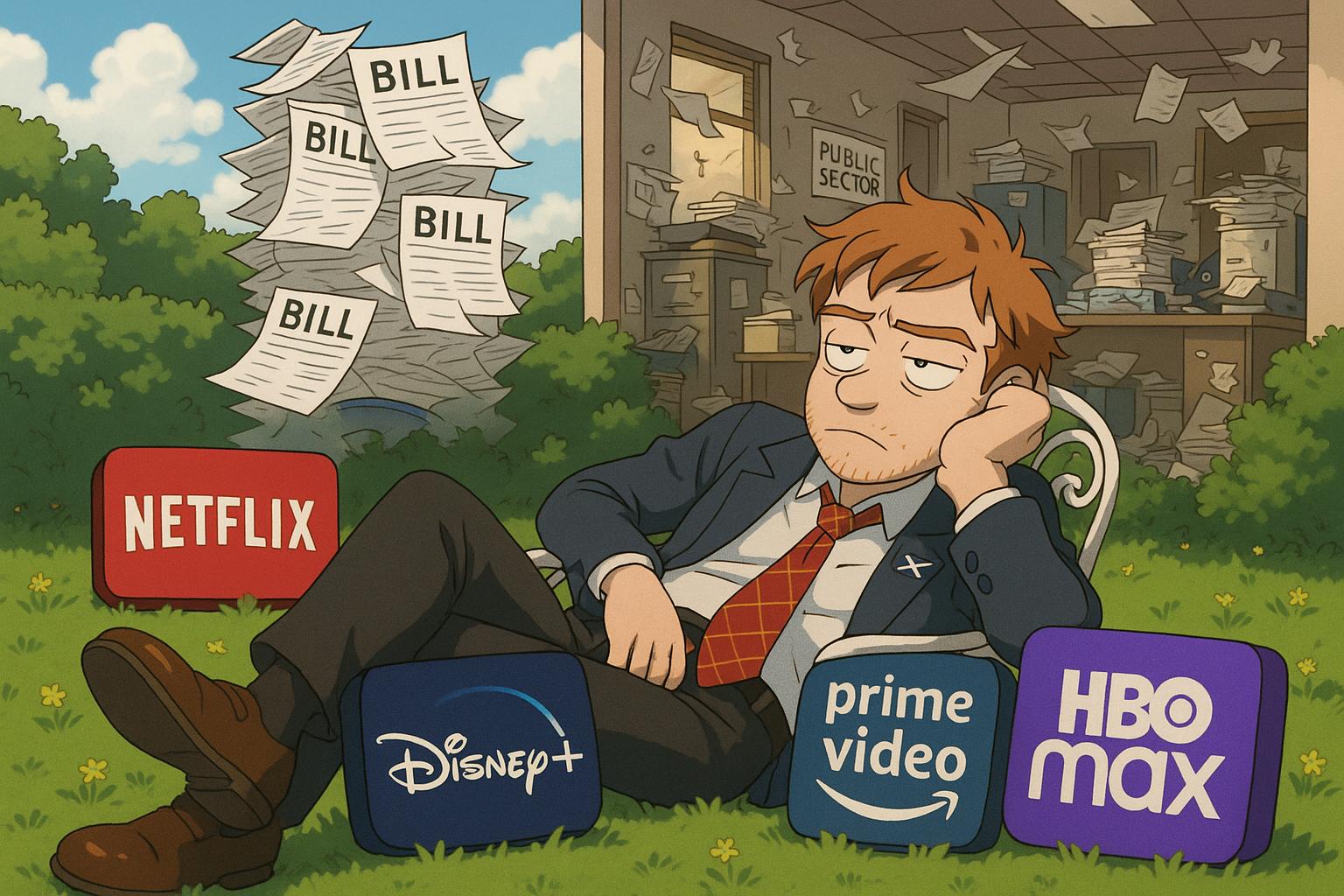You might feel some sympathy for the numerous civil servants lounging in their gardens during the current heatwave, perhaps contemplating a more thrilling workday. However, as reports from the Scottish Mail on Sunday reveal, many appear more focused on unlimited entertainment from streaming services rather than their public duties. Over the past six months, civil servants in Scotland have been caught accessing Netflix and other platforms, even viewing inappropriate content on official devices. The sheer volume of log-in attempts has reached a point where officials can no longer adequately monitor their actions.
This behaviour speaks volumes about the deeper issues plaguing the public sector, particularly under the mismanaged Scottish National Party (SNP) administration. Their leadership has been marred by scandal, exposing the disconnect between civil servant actions and the realities faced by the public. The notorious case of former Health Secretary Michael Matheson trying to reclaim nearly £11,000 in roaming charges from his Morocco holiday exemplifies this disconnect, highlighting fiscal irresponsibility at a time when ordinary citizens struggle to make ends meet.
While the SNP government has seemingly been preoccupied with their own interests, recent pay hikes of up to 12 per cent for public sector workers stand out as particularly tone-deaf. This decision, approved hastily by Kate Forbes, former Finance Secretary, raises eyebrows in light of the ongoing cost-of-living crisis that devastates many Scottish households. It’s disturbing that civil service workers in Scotland have outpaced their UK counterparts in salary increases, further straining the taxpayer-funded infrastructure.
Even more concerning is the push for a four-day work week for public sector workers, a policy that appears out of touch given the chaos in public services. Many civil servants resist returning to the office, viewing even a 40 per cent in-office requirement as an infringement on their perceived rights. This attitude reveals a troubling disconnect between those cushioned by public salaries and the taxpayers who fund their roles.
With the civil service ballooning over 70 per cent since 2016—now exceeding 9,000 employees at a cost of over £600 million annually—it raises questions about accountability. Far too many civil servants seem disengaged from the realities facing the very services they’re supposed to improve, even as crucial reforms remain neglected.
The lack of transparency in senior civil service decisions further erodes public trust. The actions of Ken Thomson, a senior civil servant who allegedly encouraged colleagues to delete critical Covid-era communications, underline a troubling fusion of state power and partisanship. Such incidents fuel the growing scepticism around civil service integrity and efficiency.
Amid rising public sector expenditure, salary adjustments for civil servants appear to prioritize their interests over those of ordinary citizens. With MSP salaries set to rise to £72,195, it becomes increasingly hard for the public to reconcile these financial rewards with the stagnation in essential services that deserve greater funding.
The relentless expansion of the public sector juxtaposes sharply against the austerity measures faced by struggling businesses and households. Many entrepreneurs are sounding alarms, pleading for the government to genuinely invest in their survival, while taxpayers resent high taxes that yield insufficient public services.
This glaring mismatch between government pay, public sentiment, and the quality of services illustrates a serious crisis. The entrenched culture of entitlement within public spending, combined with a notable disconnection from the financial struggles of the populace, complicates the path forward. How can we expect those benefiting from taxpayer largesse to effectively address the severe economic challenges ahead?
A systemic overhaul is imperative. It is time to recalibrate priorities and ensure that public servants are accountable and responsive to the needs of the citizens they serve—before it becomes too late.
Source: Noah Wire Services
